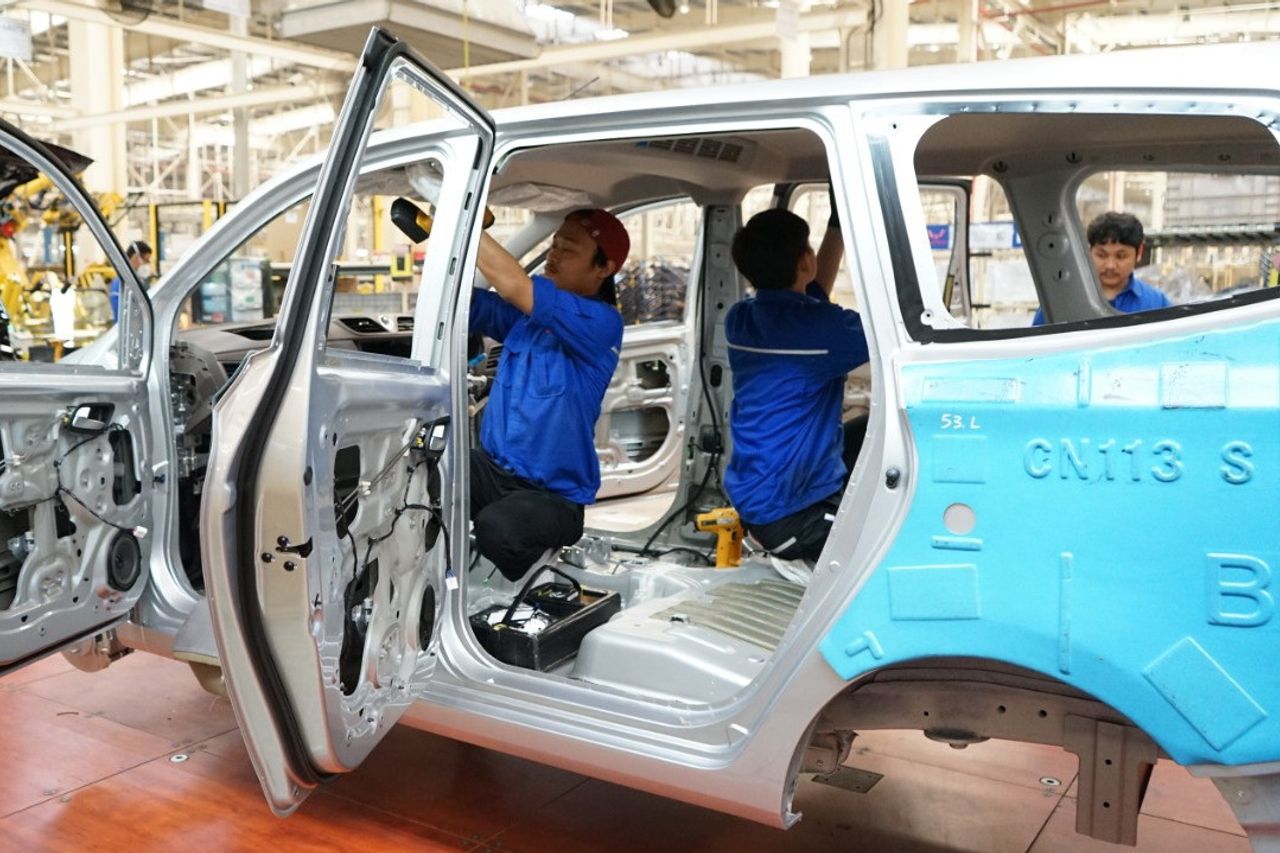The Automotive Industry Also Deserves A Stimulus Amid The COVID-19 Pandemic

JAKARTA - The Ministry of Industry (Kemenperin) continues to strive to take strategic policies to minimize the impact of the COVID-19 pandemic on the automotive industry in the country. One of them is by coordinating with the relevant stakeholders.
This effort was made to maintain the performance of the automotive industry so that it would continue to make a significant contribution to the national economy.
"Even though there are automotive manufacturers whose production has been disrupted due to COVID-19, we ensure the availability of motorized vehicle products and parts, so that they can meet the needs of the domestic and export markets," said Director of the Maritime Industry, Transportation and Defense Equipment (IMATAP) Ministry of Industry, Putu Juli Ardika. in Jakarta, Wednesday 8 April.
According to Putu, his party has proposed providing fiscal, non-fiscal and monetary stimulus for domestic automotive industry players to be more enthusiastic about running their business. In detail, the fiscal stimulus is in the form of incentives / relaxation of PPh Articles 21, 22, 25 for six months, accelerated VAT incentives / refunds for six months based on Regulation of the Minister of Finance No. 23/2020, and also provides a reduction in import import duties.
In fact, the Minister of Industry has sent a letter to the Minister of Finance regarding the proposed Tariff Post related to volume II stimulus for exemption from import duties in the context of dealing with the impact of COVID-19.
"Non-fiscal stimulus is provided in the scheme of simplifying or reducing export and import rates for raw materials, accelerating the export-import process for reputable traders, and simplifying the export-import process through the NLE (National Logistic Ecosystem)," he explained.
Meanwhile, related to monetary stimulus, it is given based on OJK Regulation Number 11 of 2020 concerning National Economic Stimulus as a Countercyclical Policy on the Impact of the Spread of Coronavirus Disease 2019 (COVID-19) and Relaxation of the Guarantee Program at BP Jamsostek.
In addition, Putu explained, the Ministry of Industry is also actively coordinating with the automotive industry to gather input as a basis for other stimuli that can be given in the future, so as to reduce the burden on the automotive industry when facing the COVID-19 pandemic.
"The proposed Economic Stimulus Package for the industrial sector, including the automotive industry, has been included in the phase I and phase II stimulus packages, and is currently being discussed again on the possibility of providing a new stimulus," he added.
Furthermore, in relation to the second phase of stimulus, the Minister of Industry has proposed granting import duty exemptions to the automotive industry. Based on the Minister of Industry's letter, 593 tariff posts were proposed to be granted import exemptions divided into 27 sector groups.
As for the motor vehicle, trailer and semitrailer industry sector, a total of 45 Tariff Postings are proposed with an import prognosis from April to September 2020 amounting to 632.17 thousand US dollars and a potential loss of the country of IDR 924 billion.
The impact is felt
Putu said that the impact of the COVID-19 outbreak was felt by the national automotive industry. This can be seen from the decline in demand for motor vehicles in Indonesia.
"The number of sales of four-wheeled vehicles or more in January 2020 was 80.4 thousand units or decreased by 1.1 percent from the previous period, then in February 2020 it was 79.5 thousand units or decreased by 3.1 percent from the previous period. "he said.
In fact, the Association of Indonesian Automotive Industries (Gaikindo) has submitted a correction to the sales target in 2020, which is estimated to experience a contraction of 50 percent due to lower domestic and foreign demand.
In addition, another problem faced by the national automotive industry is the supply of raw materials and components, especially from countries implementing lockdown policies. This has forced the motor vehicle manufacturing industry to seek alternative sources of raw materials and components to maintain production.
"The disruption of the automotive industry also has an impact on the national economy. The automotive industry has a significant contribution to GDP, especially the non-oil and gas GDP of 3.98 percent in 2019," said Putu.
Responding to several Trademark Holder Agents (APM) who temporarily stopped their production, Putu explained, this step was taken to protect the health of employees and all elements of the company as a response to the current conditions of the spread of the COVID-19 outbreak.
The Ministry of Industry has also sent letters to the Minister of Home Affairs and Governors / Regents / Mayors throughout Indonesia in the context of requests for support to assist in the implementation of industrial activities during the emergency response period in their respective regions.
"The Ministry of Industry asks local governments not to limit industrial activities. The Minister of Industry also asks the office in charge of industry and associations to provide guidance to industrial companies to always carry out the COVID-19 prevention protocol in the work environment," he explained.
Furthermore, on April 7, 2020, the Minister of Industry issued a Circular of the Minister of Industry No. 4 of 2020 regarding the implementation of factory operations during the Corona Virus Desease 2019 public health emergency. In this circular, industrial companies were given permission to continue running their business activities with the obligation to comply with the provisions of the COVID-19 prevention protocol that must be carried out by industrial companies and their workers.
